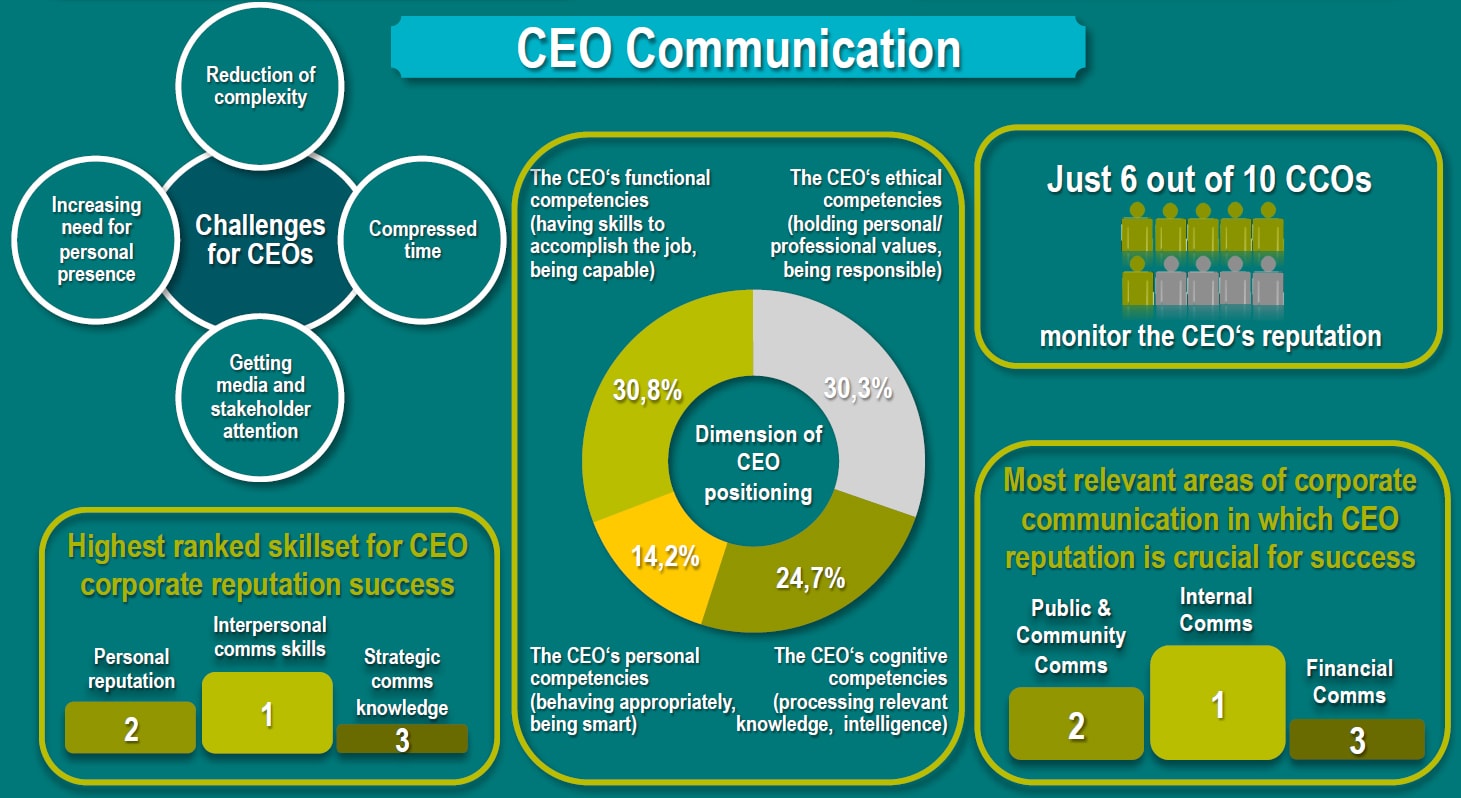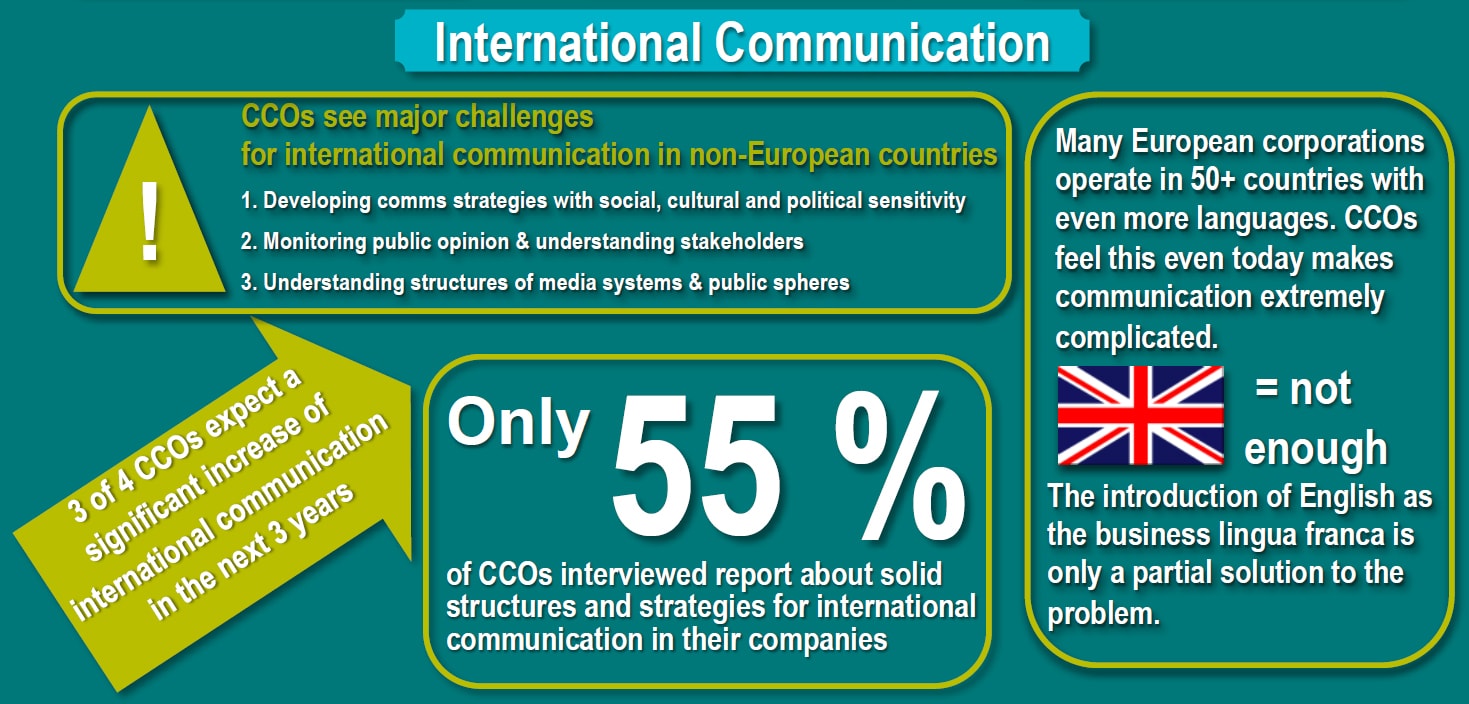The reputations of the business leaders of large organisations can make or break brands, claims a recent survey of some of Europe’s top communication leaders supported by PR firm Ketchum. Nine out of ten chief communication officers (CCOs) in Europe say their CEO’s capacity to deal with the media and other critical audiences has become interwoven with the overall success and reputation of their businesses.
Joachim Klewes, senior partner at Ketchum Pleon (Germany) explains: “The top executive of a company articulates and symbolises what their organisations are and what they stand for. Essentially they reduce company complexity and enliven the brand. We are living in an age of responsibility and accountability where the public is looking to identify with real people. Business leaders, who can easily by categorised as heroes or villains, are at the forefront of this change.”

Key findings of the survey are:
- CCOs say that for an organisation to be successful the CEO needs inter-personal communication skills (93 per cent); media handling skills (92 per cent); a good personal reputation (91 per cent); and knowledge of strategic communication (82 per cent).
- To make sure that their CEOs are delivering maximum value to their organisation, most communication teams are actively working to position their CEO (83 per cent); are actively working on announcements and tools related to their CEO’s profile (67 per cent); are working on a communication strategy for their CEO (67 per cent); and are actively monitoring their CEO’s reputation (60 per cent).
- When it comes to highlighting particular attributes of their CEOs, these focused on the CEO’s skills, values, knowledge and conduct.

Discussing what PROs can do to help their CEOs improve their own reputations and that of the business, Joachim Klewes says that it’s all about balancing central authority (not necessarily control) and local independence.
Klewes offers these further tips to help make sure the organisation is best able to control its reputation:
- Make sure there is a central definition of the framework for communications (positioning, messaging, stakeholder and channel priorities) as well as central processes (planning, resources) and that these are aligned with strategic priorities of the corporation as well as the overall planning process.
- Diversity and international experience are key for recruitment and composition of communication professionals in corporate headquarters as well as in decentralised communication teams.
- It is important that the skills and authority of the communication team extends beyond having traditional qualifications. Develop change management and general management skills too.
Methodology
These findings are drawn from the European Chief Communication Officers Survey which analysed the views of 579 heads of communication in corporations based across 39 European countries. The research was conducted by a research team of leading academics from five European universities, co-ordinated by the European Public Relations Education and Research Association (EUPRERA) and supported by Ketchum.
PR Masterclass: The Intersection of PR and GEO
Wednesday 25th February, both virtual and in person tickets are available.
PR MasterclassIf you enjoyed this article, sign up for free to our twice weekly editorial alert.
We have six email alerts in total - covering ESG, internal comms, PR jobs and events. Enter your email address below to find out more:





